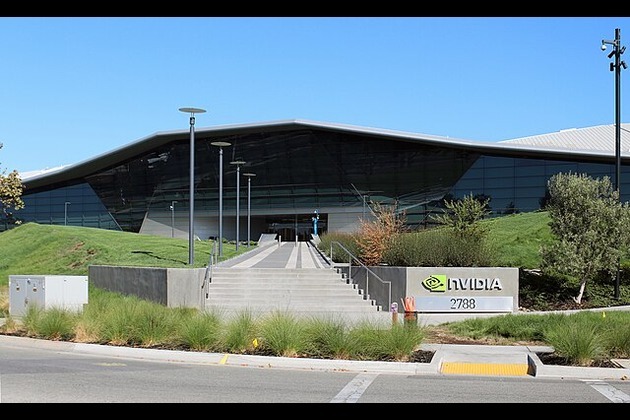Polarized vs. Non-Polarized: Which Replacement Lenses are Right for You?
7Newswire
16 Dec 2022, 08:41 GMT+10

When shopping for replacement sunglasses lenses, you'll likely come across two main types: polarized and non-polarized. But what's the difference between these two types of lenses, and how do you know which one is right for you? In this article, we'll go over the key differences between polarized and non-polarized lenses, as well as the pros and cons of each type.
What are Polarized Lenses?
Polarized lenses are designed to reduce glare, which is light that is reflected off of flat surfaces such as water, snow, and the road. Glare can be distracting and uncomfortable, and it can also reduce visibility and increase the risk of accidents. Polarized lenses work by blocking out horizontally-polarized light, which is the main source of glare.
Polarized lenses are made by applying a special chemical coating to the lens. This coating contains tiny vertical lines that are aligned with the light waves, which helps to block out horizontally-polarized light. Polarized lenses are available in a variety of tints, including gray, brown, and green, and they can be made in any lens material, including plastic, glass, and polycarbonate.
What are Non-Polarized Lenses?
Non-polarized lenses, also known as standard lenses, do not have the special chemical coating that polarized lenses have. As a result, they do not block out horizontally-polarized light and do not reduce glare. Non-polarized lenses are available in a wide range of tints and materials, just like polarized lenses.
Lack of Glare-Reducing Properties in Non-Polarized Lenses
Unlike polarized lenses, non-polarized lenses do not have the ability to reduce glare. Glare is light that is reflected off of flat surfaces such as water, snow, and the road. It can be distracting and uncomfortable, and it can also reduce visibility and increase the risk of accidents. Polarized lenses work by blocking out horizontally-polarized light, which is the main source of glare. Non-polarized lenses do not have this ability, as they do not have the special chemical coating that is used in polarized lenses.
Available Tints and Materials for Non-Polarized Lenses
Non-polarized lenses are available in a wide range of tints and materials, just like polarized lenses. Tints for non-polarized lenses can range from very light to very dark, and the right tint for you will depend on the level of light that you'll be exposed to. For example, very light tints are best for low light conditions, while very dark tints are best for bright conditions.
As for materials, non-polarized lenses can be made from plastic, glass, or polycarbonate. Plastic lenses are the most common and are generally the least expensive option. They are lightweight and durable, making them a good choice for everyday wear. Glass lenses are more expensive but are also more scratch-resistant and have better clarity than plastic lenses. Polycarbonate lenses are a popular choice for sports and outdoor activities because they are lightweight and impact-resistant. Non-polarized lenses are available in all three of these materials, so you can choose the one that best suits your needs and preferences.
Pros and Cons of Polarized Lenses
Polarized lenses have several advantages over non-polarized lenses. As mentioned, they can help to reduce glare, which can be particularly useful for activities such as driving, fishing, and water sports. Polarized lenses can also help to improve visibility and reduce eye strain in bright conditions.
However, there are also some drawbacks to polarized lenses. One potential issue is that they can make it harder to see LCD screens and other electronic displays. This can be a problem for activities such as GPS navigation or checking emails on your phone. Polarized lenses may also make it harder to see through some car windshields, which can be dangerous if you rely on your sunglasses while driving.
Pros and Cons of Non-Polarized Lenses
Non-polarized lenses do not have the same glare-reducing properties as polarized lenses, but they do have some advantages of their own. For one, they do not interfere with LCD screens or other electronic displays, which can be convenient if you rely on your sunglasses while using your phone or other devices. Non-polarized lenses also do not have any issues with car windshields, making them a safe choice for driving.
However, non-polarized lenses may not be as effective at reducing glare and improving visibility in bright conditions as polarized lenses. They may also cause more eye strain in these situations, as the glare is not being filtered out.
Which is Right for You?
Ultimately, the decision between polarized and non-polarized lenses comes down to your personal needs and preferences. If you frequently engage in activities where glare reduction is important, such as driving or water sports, polarized lenses may be the better choice. However, if you rely on your sunglasses for electronic displays or if you have concerns about car windshields, non-polarized lenses may be a better option.
It's also worth considering the lens material and tint when making your decision. Both polarized and non-polarized Share
Share
 Tweet
Tweet
 Share
Share
 Flip
Flip
 Email
Email
Watch latest videos
Subscribe and Follow
Get a daily dose of Oakland Times news through our daily email, its complimentary and keeps you fully up to date with world and business news as well.
News RELEASES
Publish news of your business, community or sports group, personnel appointments, major event and more by submitting a news release to Oakland Times.
More InformationUnited States
SectionEngine defect prompts Nissan to recall over 443,000 vehicles
FRANKLIN, Tennessee: Hundreds of thousands of Nissan and Infiniti vehicles are being recalled across the United States due to a potential...
Microsoft trims jobs to manage soaring AI infrastructure costs
REDMOND, Washington: Microsoft is the latest tech giant to announce significant job cuts, as the financial strain of building next-generation...
Stocks worldwide struggle to make ground Friday with Wall Street closed
LONDON UK - U.S. stock markets were closed on Friday for Independence Day. Global Forex Markets Wrap Up Friday with Greeback Comeback...
Nvidia briefly tops Apple’s record in AI-fueled stock rally
SANTA CLARA, California: Nvidia came within a whisker of making financial history on July 3, briefly surpassing Apple's all-time market...
Trump wins $16 million settlement from Paramount over CBS Harris edit
NEW YORK CITY, New York: Paramount has agreed to pay US$16 million to settle a lawsuit brought by U.S. President Donald Trump over...
ICE raids leave crops rotting in California, farmers fear collapse
SACRAMENTO, California: California's multibillion-dollar farms are facing a growing crisis—not from drought or pests, but from a sudden...
International
SectionTragedy in Spain: Diogo Jota and his brother die in car accident
MADRID, Spain: Liverpool footballer Diogo Jota and his younger brother, André Silva, have died in a car accident in Spain. Spanish...
Early heatwave grips Europe, leaving 8 dead and nations on alert
LONDON, U.K.: An unrelenting heatwave sweeping across Europe has pushed early summer temperatures to historic highs, triggering deadly...
U.S. military, China, Russia in Space race
President Donald Trump's plans to build a space-based Golden Dome missile defense shield have drawn immediate criticism from China,...
Trump wins $16 million settlement from Paramount over CBS Harris edit
NEW YORK CITY, New York: Paramount has agreed to pay US$16 million to settle a lawsuit brought by U.S. President Donald Trump over...
British PM faces major party revolt over welfare reforms
LONDON, U.K.: British Prime Minister Keir Starmer won a vote in Parliament this week to move ahead with changes to the country's welfare...
White House meeting between Trump, Netanyahu on July 7
WASHINGTON, D.C.: President Donald Trump will meet Israeli Prime Minister Benjamin Netanyahu at the White House on Monday. President...












